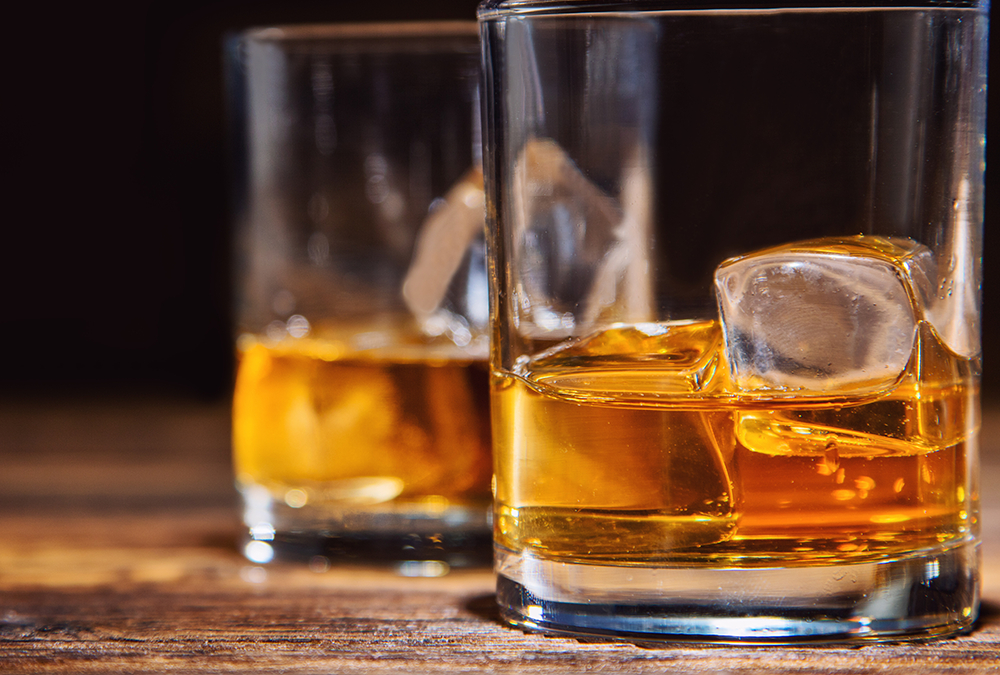Mon - Fri 9.00 - 17.00
Call us +1 (888) 825-9321

Whether you’re an avid intermittent faster or looking to try intermittent fasting for weight loss or health purposes, wondering if intermittent fasting and alcohol are compatible is a common question. The answer? They are and they aren’t. The when, how much, and what kind are the determining factors.
When you’re fed, full, and happy your cells are all about growth. Insulin signaling and mTOR pathways are activated and directing cell growth, division, and proliferation. Genes involved in cell survival are turned on, while genes associated with fat metabolism, stress resistance, and cellular repair are turned off.
When you’re fasting, however, the name of the cellular game is efficiency. The body responds to the lack of food by shutting down mTOR signaling and activating the AMPK signaling pathway, which tells cells to save themselves and go into a protective mode called autophagy.
Now, autophagy means “self-eating,” which doesn’t sound too appetizing…or healthy…but autophagy acts as a cleanup crew, ridding the body of damaged cells so it can make way for newer, more efficient cells.
Intermittent fasting also increases concentrations of the molecule NAD+.
You see, when dietary proteins are available, NAD+ is converted into NADH through the Krebs cycle. Without these dietary proteins swimming around, increased NAD+ leads to increased sirtuins, which inhibit the genes that direct cell growth and activate the genes that create new mitochondria and wipe out destructive reactive oxygen molecules.
Low food availability also boosts fat burning and increases ketone bodies, which turn on the genes that help with cellular repair and antioxidant processes.
All good stuff happening with intermittent fasting!
It sure will! Alcohol is made of calories—7 calories per gram, in fact, with one drink offering up 100 calories or more.
We don’t suggest breaking your fast with alcohol, as drinking on an empty stomach causes the alcohol to be absorbed way too quick, so you are more apt to feel way more drunk.
And then there’s the adverse effect on fat burning. For instance, one study showed that people had significantly decreased fat breakdown 5 hours after eating an alcohol-rich meal than after eating a balanced meal of fat, protein, and carbs (1).
While your body won’t stay in fasting mode if you drink alcohol…and you won’t be getting all the benefits, like anti-inflammation and fat burning…it doesn’t mean you can’t have a drink during your eating windows. After all, the occasional glass of wine can be good for you.
Excessive drinking, on the other hand, will stall your weight-loss and health goals.

Heavy drinking is considered 3 or more drinks a day for women and 4 or more drinks a day for men.
Excessive drinking spikes systemic inflammation throughout the body, stresses out your liver and gut, leading to conditions such as liver damage and leaky gut syndrome. It prevents autophagy and inhibits fat burning, not to mention it impairs your judgment so you’re likely to eat a lot more than when sober.
Moderate drinking is not associated with the weight gain and ill health effects of heavy drinking. That’s 1 drink a day for women and 1-2 drinks a day for men.
If it’s your day off from intermittent fasting and you’re in the mood for some bubbly, try a dry champagne or a dry wine. Dry wines and champagne are lower in sugar.
Distilled spirits are also almost exclusively alcohol so you don’t have to worry about added ingredients sabotaging your weight-loss and health goals.
Stay away from the sugary and premixed drinks!
We hope so! It’s a healthy way to incorporate autophagy into your wellness regimen.
We’ve put together our favorite fasting blog posts here.
And if you’re new to IF, then check out our beginner’s guide to intermittent fasting here.
Thanks, Angelo!